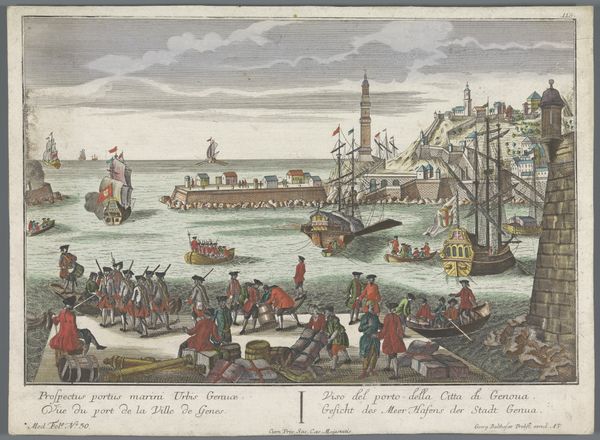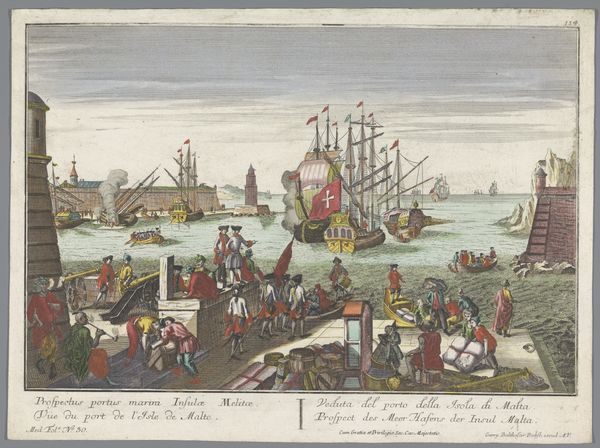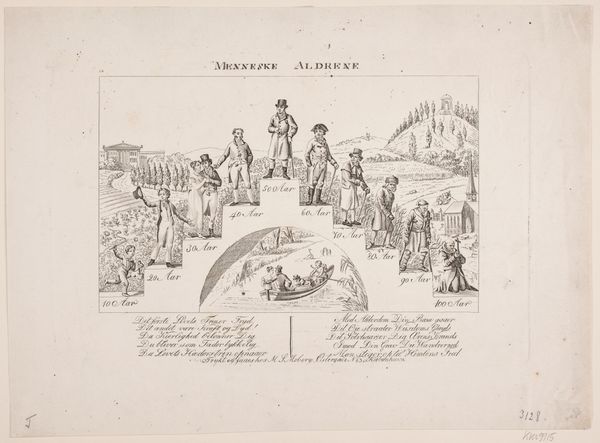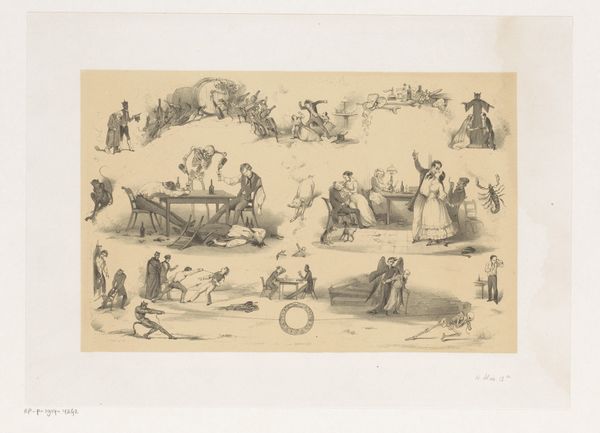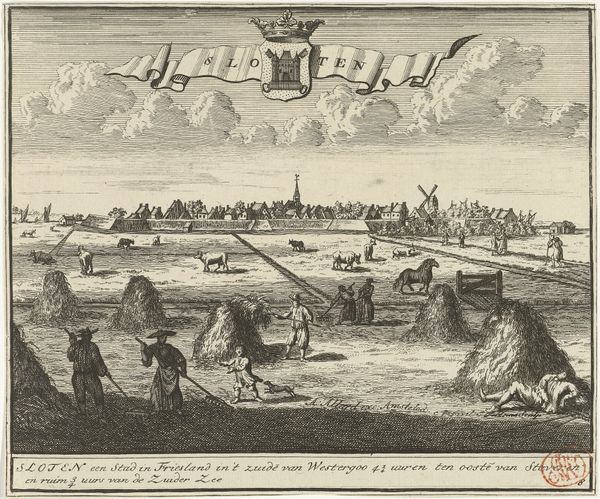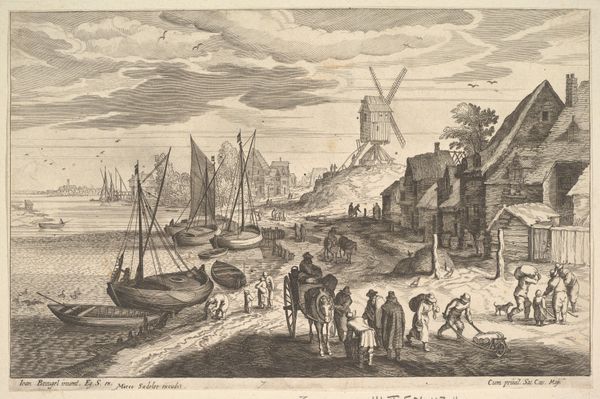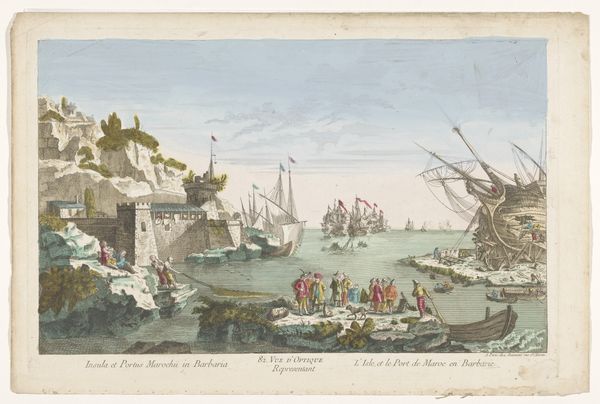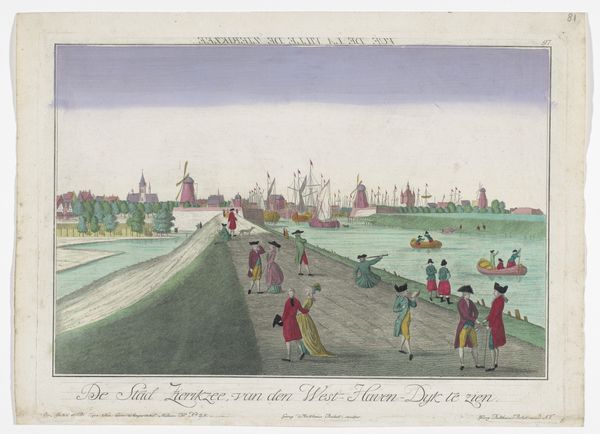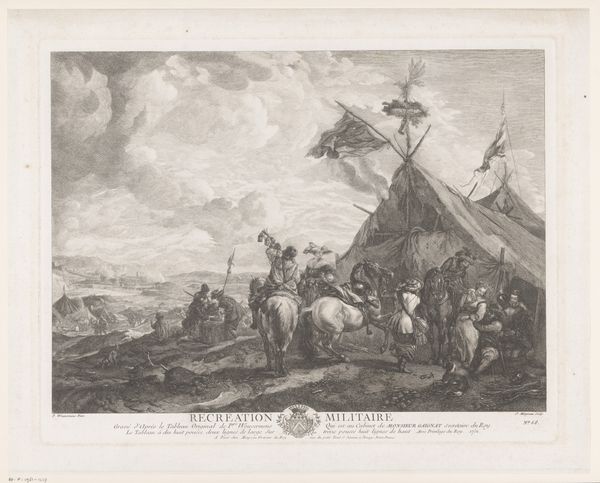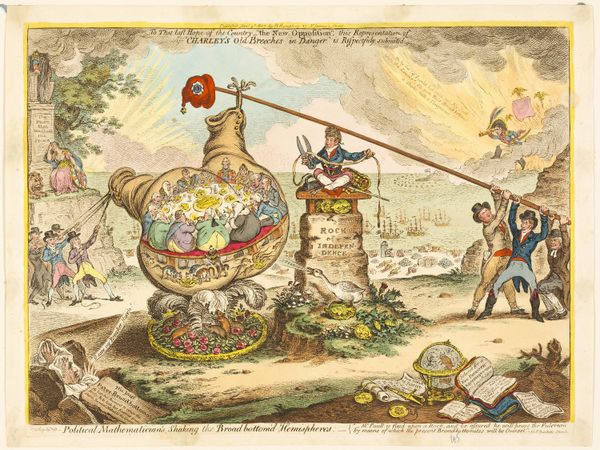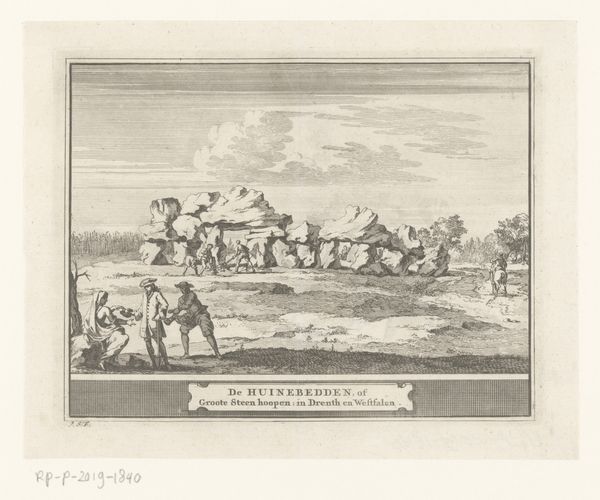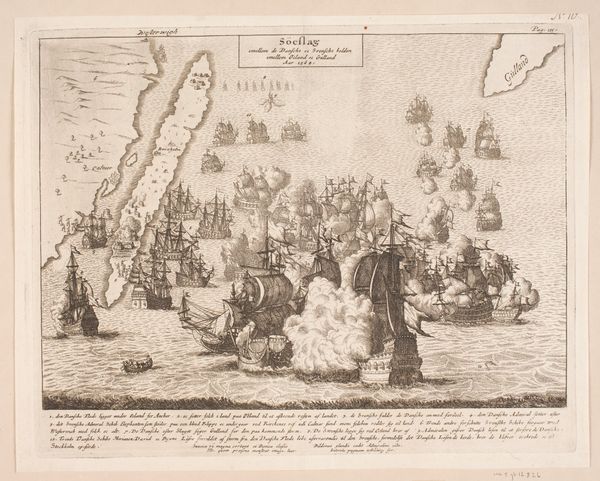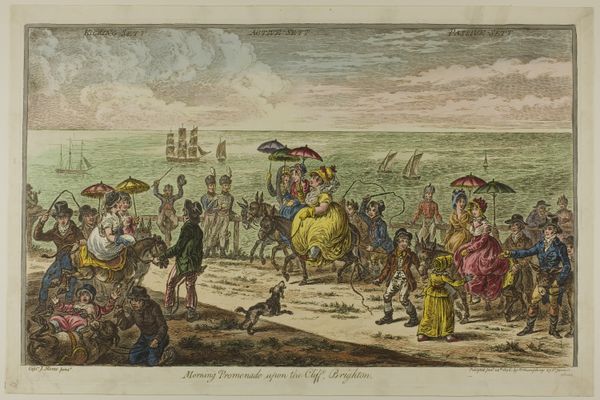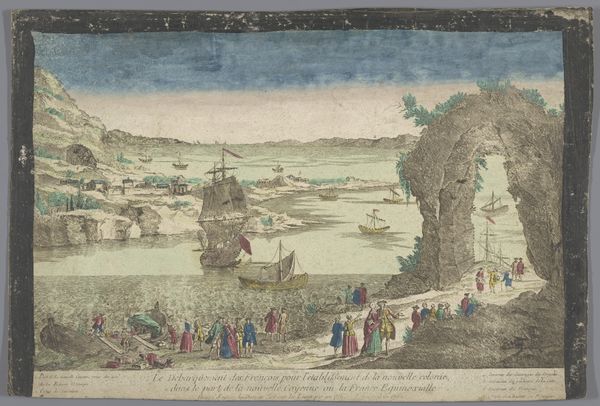
print, etching, engraving, architecture
#
narrative-art
#
baroque
# print
#
etching
#
landscape
#
ancient-egyptian-art
#
watercolour illustration
#
history-painting
#
engraving
#
architecture
Dimensions: height 193 mm, width 296 mm
Copyright: Rijks Museum: Open Domain
Gottfrid Pfaunz’s print, “Bouw van Egyptische Piramdes,” probably created in the 17th or 18th century, visualizes an ambitious building project using the simple techniques of engraving and hand-coloring. The image shows us the ancient pyramids under construction, but the methods and materials are imagined rather than historically accurate. Workers heave and haul stone blocks, a furnace melts metal to cap the pyramids’ peaks, and the whole scene feels oddly dreamlike. What interests me most is not the historical inaccuracies, but rather the way the printmaking process itself mirrors the labor on display. Just as each worker had a specific task in the pyramid's construction, so too did the printmaker and colorist in creating this image. The collaborative, repetitive actions involved in printing reflect wider social structures of labor and production. By understanding the artist's process, we gain insight into the pyramid's construction and the world that produced this enchanting, though inaccurate, image.
Comments
No comments
Be the first to comment and join the conversation on the ultimate creative platform.
